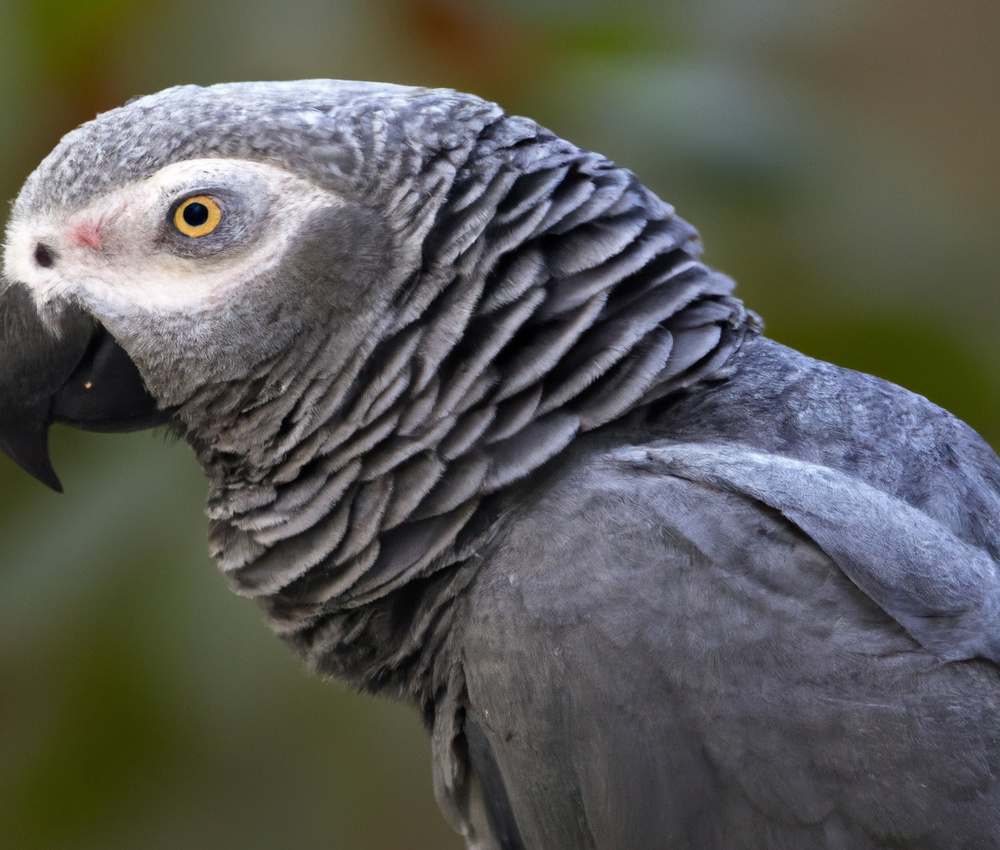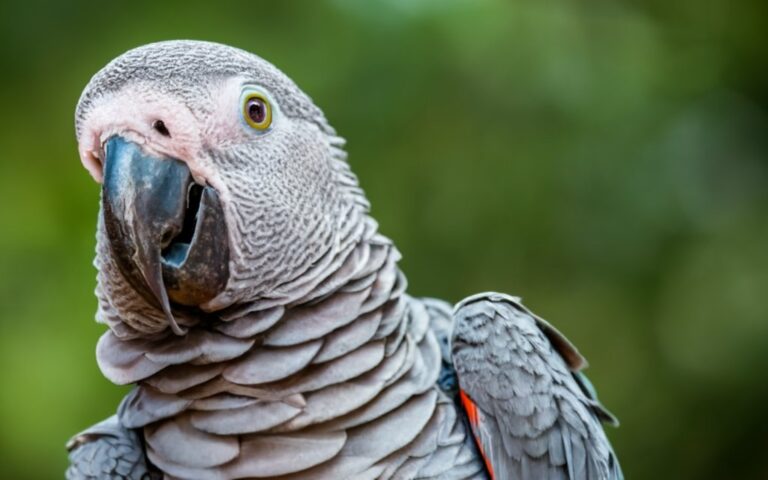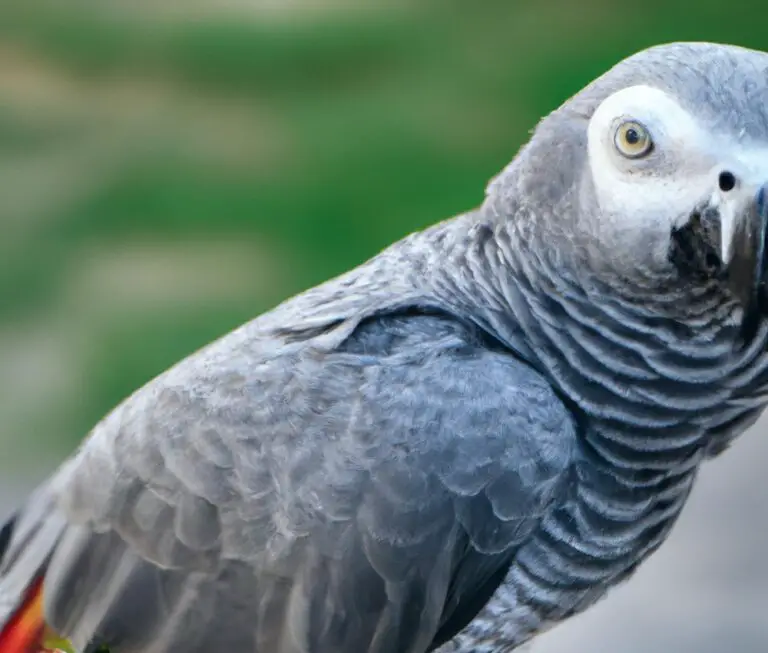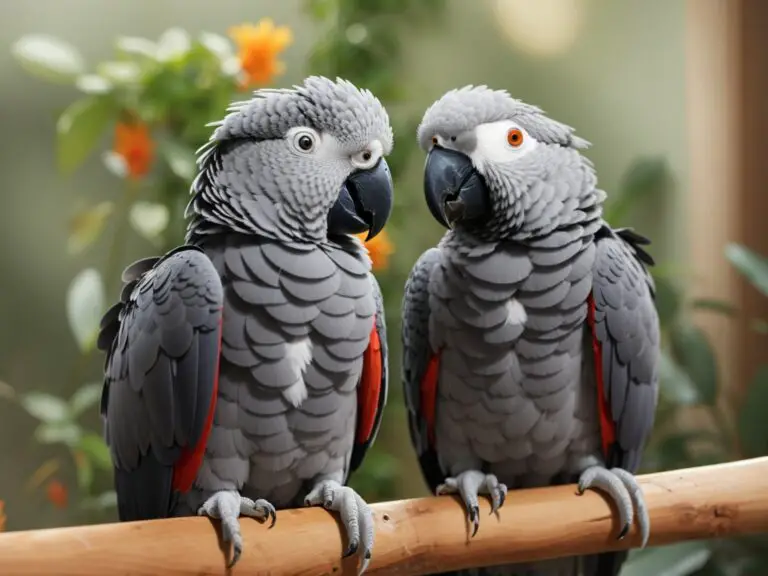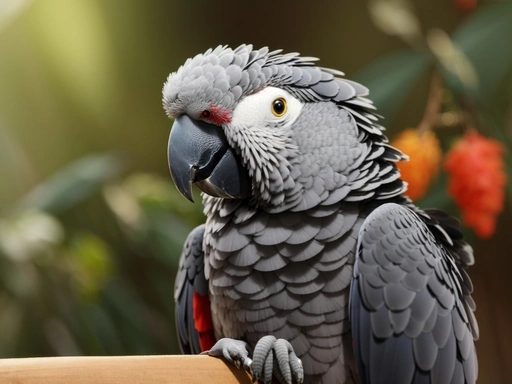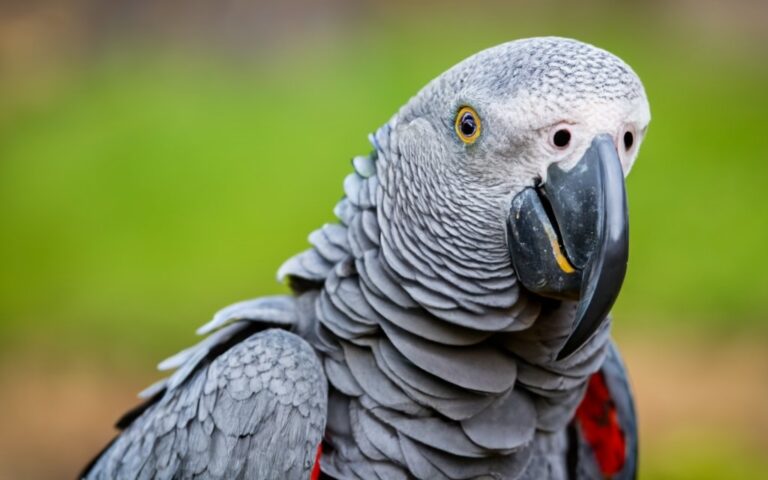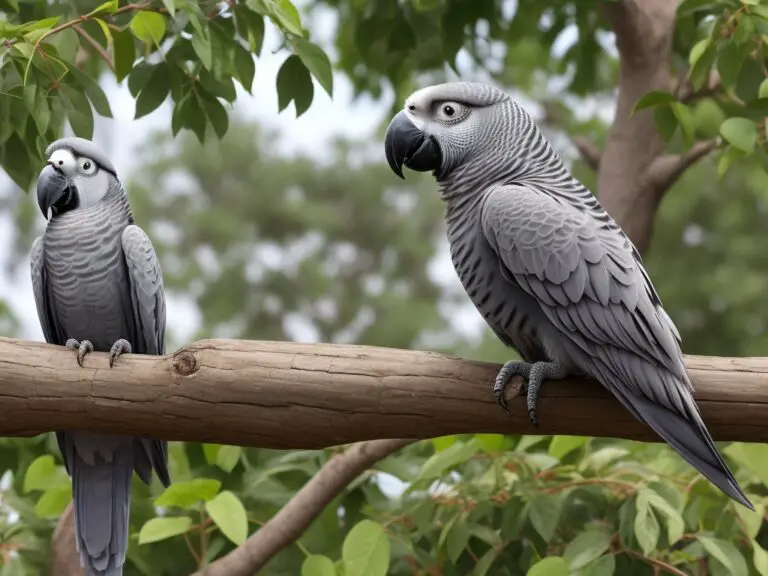How Do I Recognize Signs Of Illness In My African Grey Parrot?
Key Takeaways:
- Monitor changes in behavior and appetite.
- Pay attention to physical signs such as feather plucking or discharge.
- Look out for respiratory problems or unusual sounds.
- Seek immediate veterinary attention if you suspect illness.
Are you familiar with that feeling of pure love and joy when you see your African Grey Parrot thriving and full of life?
These magnificent creatures have a way of bringing immeasurable happiness to our lives.
But what happens when they’re not feeling their best?
How can we recognize the signs of illness in our beloved feathered friends?
In this article, I’ll guide you through understanding the normal behavior of African Grey Parrots, as well as the key indicators of potential health issues.
From changes in appetite to respiratory symptoms and abnormal feather appearance, we’ll explore it all.
So let’s delve into the world of parrot health and ensure the well-being of our cherished companions!
| Signs of Illness | Description |
|---|---|
| 1. Changes in Appetite | Your parrot may eat less or stop eating altogether. |
| 2. Weight Loss | You may notice a significant decrease in your parrot’s weight. |
| 3. Lethargy | Your parrot may appear weak, tired, or less active than usual. |
| 4. Discolored Feathers | Feathers may become dull, matted, or discolored. |
| 5. Sneezing or Coughing | Your parrot may exhibit respiratory symptoms. |
| 6. Runny Stool | Watery or loose droppings may indicate illness. |
| 7. Rapid Breathing | Your parrot may breathe with difficulty or pant excessively. |
| 8. Changes in Vocalization | Unusual sounds or lack of vocalization can be a sign. |
| 9. Eye or Beak Discharge | Any abnormal discharge from the eyes or beak should be observed. |
| 10. Changes in Behavior | Your parrot may become aggressive, irritable, or withdrawn. |
Signs of Illness in African Grey Parrots
Keep an eye out for changes in appetite, respiratory symptoms, abnormal droppings, feather appearance, behavior, and eye/beak issues in your African Grey Parrot.
Overview of African Grey Parrots
African Grey Parrots are highly intelligent and sociable birds native to the rainforests of West and Central Africa. They are known for their exceptional mimicking ability and can be quite talkative.
These birds have a distinctive grey plumage, red tail feathers, and a large, powerful beak.
They require mental stimulation, a balanced diet, and regular social interaction to thrive. African Grey Parrots can make wonderful pets for experienced bird owners who are willing to provide them with proper care and attention.
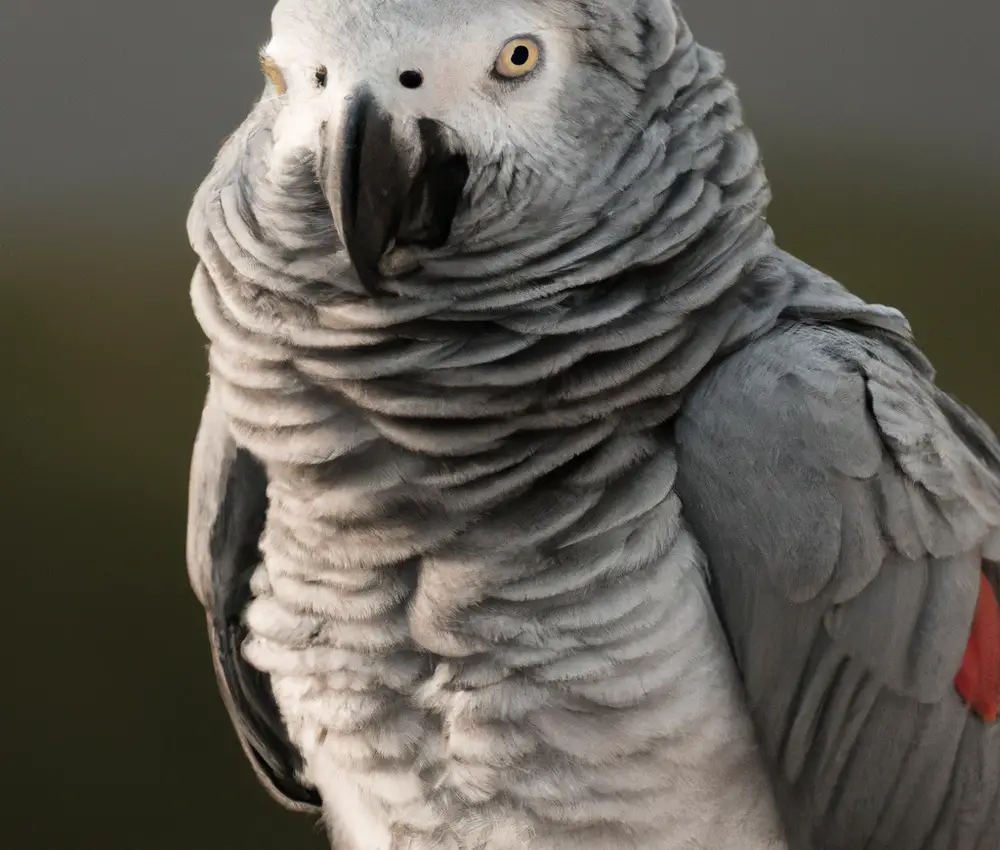
Understanding Normal Behavior
Understanding the normal behavior of African Grey Parrots is important for recognizing signs of illness. Normal behavior includes being active and alert, having bright eyes, preening their feathers, playing with toys, and vocalizing.
Changes in behavior like lethargy, loss of appetite, or aggression may indicate illness.
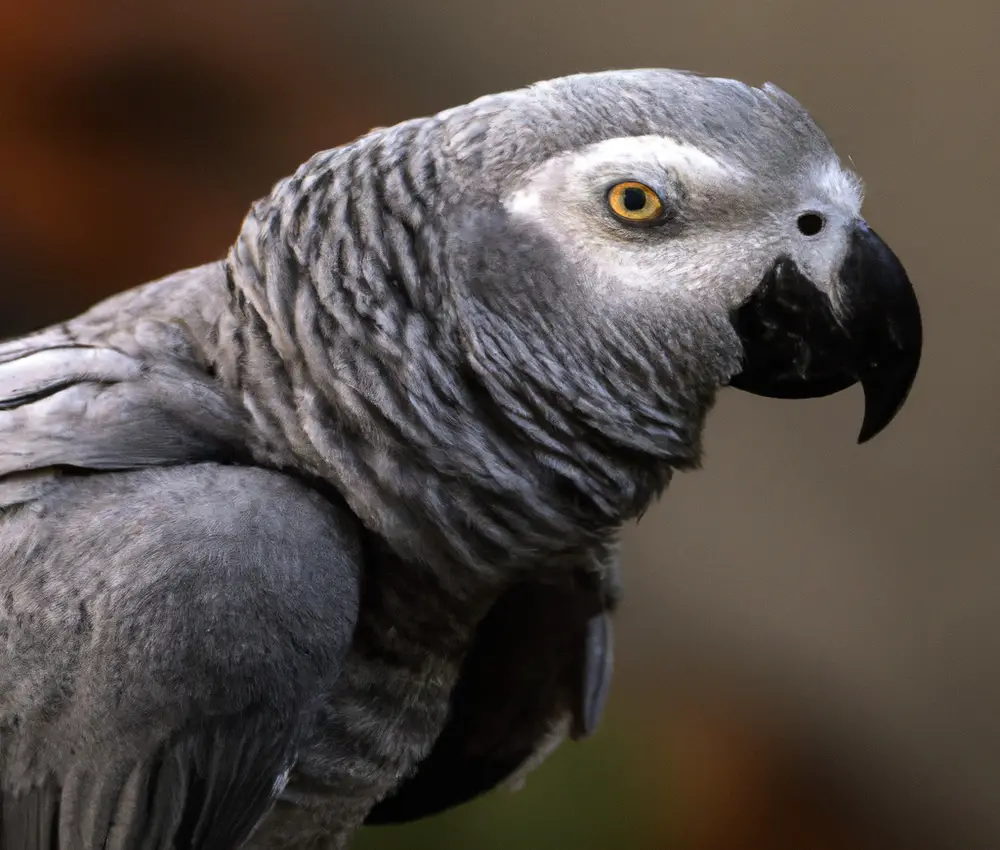
Changes in Appetite and Eating Habits
Changes in appetite and eating habits can be indicative of illness in African Grey Parrots. If your parrot suddenly loses interest in food or refuses to eat, it may be a cause for concern.
On the other hand, if your parrot’s appetite increases significantly or it starts showing abnormal eating behaviors, it could also be a sign of illness.
It’s important to monitor your parrot’s eating habits closely and seek veterinary care if you notice any significant changes.
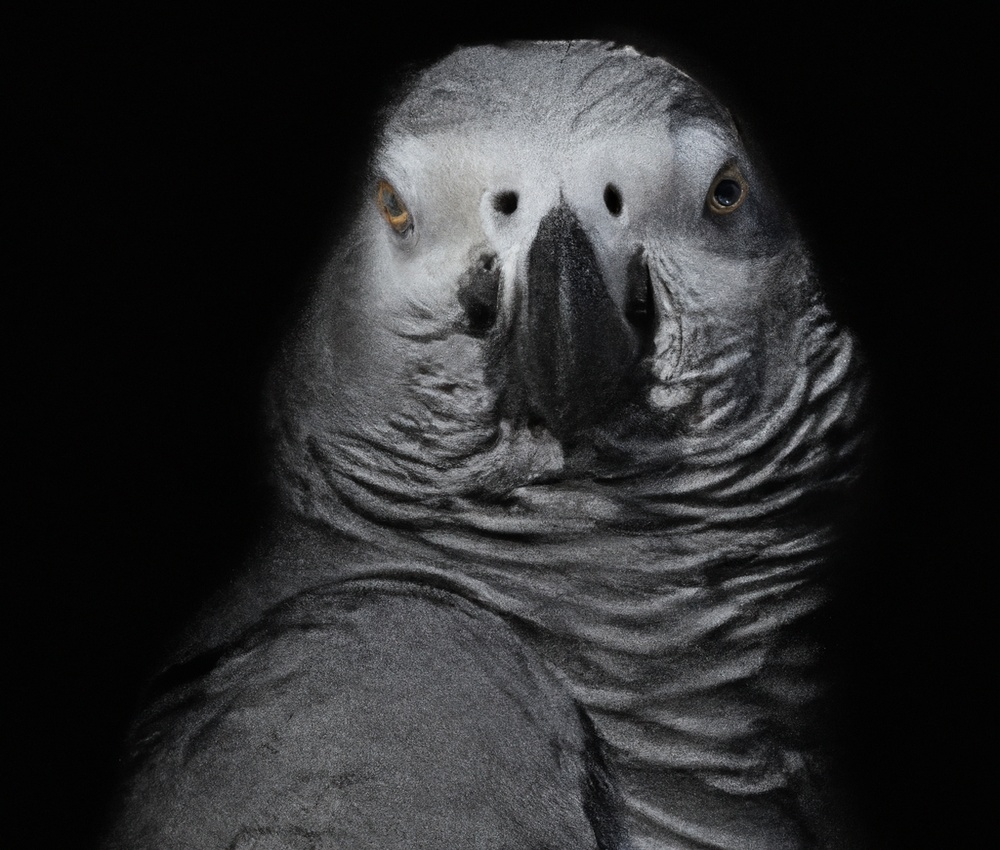
Respiratory Symptoms
Respiratory symptoms in African Grey Parrots can indicate underlying health issues.
These symptoms may include wheezing, coughing, sneezing, difficulty breathing, or nasal discharge.
If you observe any of these symptoms in your parrot, it’s important to seek veterinary care as soon as possible.
Respiratory issues can be indicative of serious illnesses such as pneumonia or infection, so early intervention is crucial for your parrot’s well-being.
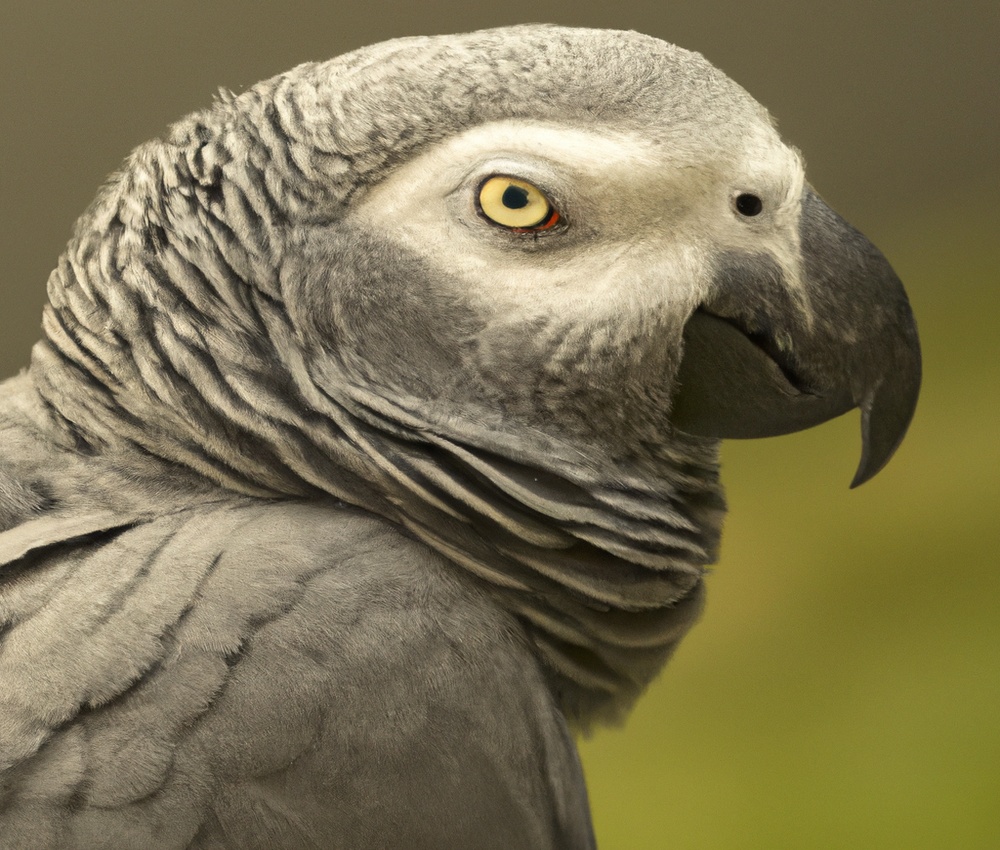
Changes in Droppings
Changes in droppings can be a strong indicator of illness in African Grey Parrots.
Keep an eye out for significant changes in color, consistency, or frequency of droppings.
Abnormalities like watery or discolored droppings, excessive urates, or blood in the droppings should be taken seriously and veterinary care should be sought immediately.
Regularly monitoring your parrot’s droppings is essential for early detection of health issues.
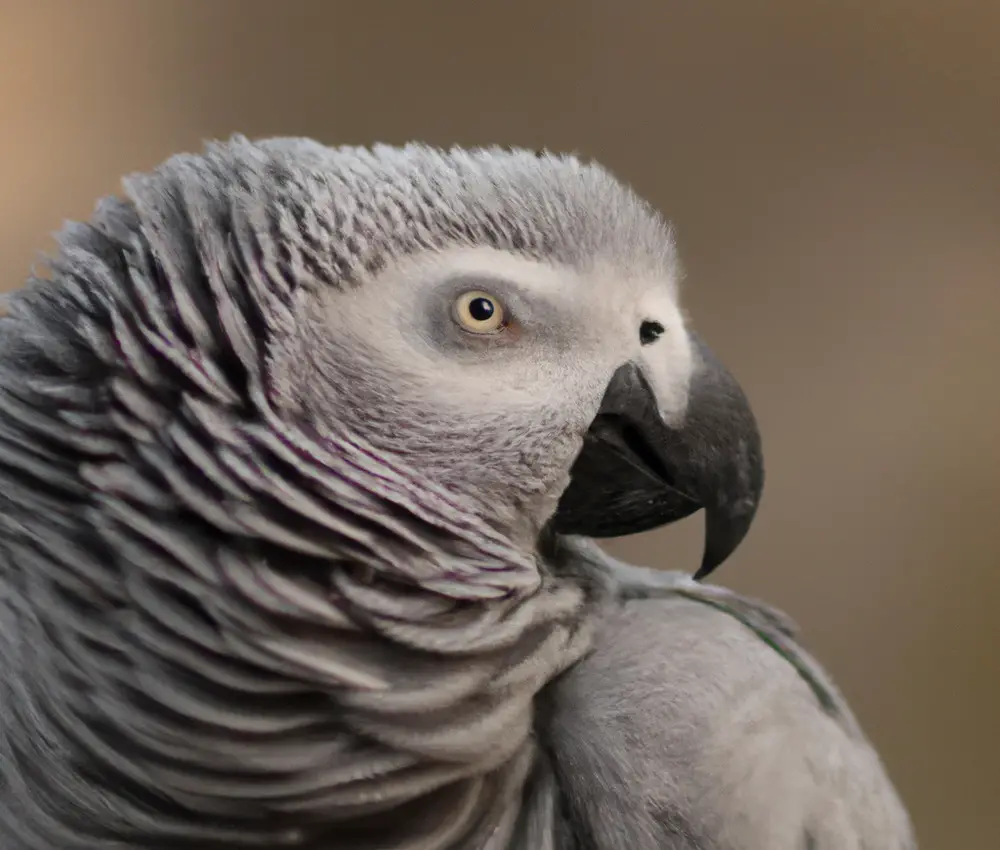
Behavioral Changes
Behavioral changes in African Grey parrots can indicate underlying illness or discomfort. Look out for signs such as increased aggression, excessive vocalization, changes in sleep patterns, loss of interest in toys or activities, repetitive movements, feather plucking, or self-mutilation.
If you notice these changes, it is important to seek veterinary care promptly to ensure the health and well-being of your parrot.
Eye and Beak Issues
Eye and beak issues in African Grey Parrots can be indicators of illness.
Pay attention to any discharge, redness, swelling, or cloudiness in their eyes.
Beak problems can include overgrown, misaligned, or cracked beaks.
These issues may suggest infections, injuries, or nutritional deficiencies.
Contact a vet immediately if you notice any abnormalities in your parrot’s eyes or beak.
Common Illnesses in African Grey Parrots
Common illnesses in African Grey Parrots include:
- Psittacosis (Chlamydiosis – a bacterial infection that can affect the respiratory system, eyes, and other organs.
- Aspergillosis – a fungal infection that can affect the respiratory system, leading to difficulty breathing.
- Feather-plucking – a behavioral problem that can result from stress, boredom, or medical issues.
- Bacterial and viral infections – such as avian influenza, Newcastle disease, and bacterial infections affecting the respiratory or gastrointestinal systems.
- Vitamin A deficiency – which can cause respiratory and vision problems, among other symptoms.
- Proventricular Dilatation Disease (PDD – a viral infection that affects the digestive system and can cause regurgitation and weight loss.
If you notice any changes in your African Grey Parrot’s behavior, appetite, droppings, feather appearance, or respiratory health, it’s important to seek veterinary care promptly.
Regular veterinary check-ups and a healthy diet can help prevent many illnesses in African Grey Parrots.
Preventive Measures for Parrot Health
Keeping your parrot healthy requires a combination of proper nutrition, regular veterinary check-ups, and maintaining a clean environment. Here are some preventive measures to ensure your parrot’s well-being:
- Provide a balanced diet: Feed your parrot a variety of fresh fruits, vegetables, nuts, seeds, and high-quality pellets to ensure they receive essential nutrients.
- Offer clean water: Change your parrot’s water daily to prevent bacterial growth and ensure they stay hydrated.
- Maintain a clean cage: Regularly clean your parrot’s cage and accessories to prevent the build-up of bacteria, mold, and parasites.
- Monitor their environment: Keep your parrot away from strong fumes, drafts, and extreme temperature fluctuations to prevent respiratory issues.
- Encourage mental stimulation: Provide your parrot with toys, puzzles, and social interactions to keep their mind engaged and prevent boredom.
- Practice good hygiene: Wash your hands before handling your parrot to prevent the spread of germs and potential illnesses.
- Minimize stress: Create a calm and secure environment for your parrot, as stress can weaken their immune system. Avoid sudden changes and provide a consistent routine.
- Regular vet check-ups: Schedule regular veterinarian visits for routine check-ups, vaccinations, and parasite prevention.
Remember, preventive measures play a crucial role in maintaining your parrot’s health and ensuring a happy and fulfilling life for your feathered friend.
Frequently Asked Questions about African Grey Parrot Illnesses
Sure! I’d be happy to answer some frequently asked questions about African Grey Parrot illnesses.
Here are the answers to the most common queries:
1. Is it normal for my African Grey Parrot to have changes in appetite and eating habits?
Yes, changes in appetite can be a sign of illness.
A decrease in food intake or sudden increase in thirst should be monitored closely.
2. What are some respiratory symptoms I should look out for in my African Grey Parrot?
Watch for signs of respiratory distress, such as coughing, wheezing, nasal discharge, or labored breathing.
3. How can I recognize changes in my parrot’s droppings as a sign of illness?
Pay attention to changes in color, consistency, or frequency of your parrot’s droppings.
Any sudden or significant changes may indicate an underlying health issue.
4. What are the signs of abnormal feather appearance in my African Grey Parrot?
Look for feathers that are discolored, ragged, or excessively fluffed.
These can be signs of feather plucking, feather mites, or other health problems.
5. What behavioral changes should I be concerned about in my African Grey Parrot?
Keep an eye out for unusual behavior like lethargy, aggression, excessive vocalization, or a loss of interest in activities they used to enjoy.
6. Are there any specific eye and beak issues I should watch out for in African Grey Parrots?
Redness, swelling, discharge, or cloudiness in the eyes, as well as beak abnormalities, can be signs of infection or injury.
7. What are some common illnesses that African Grey Parrots can develop?
Common illnesses in African Grey Parrots include respiratory infections, psittacine beak and feather disease (PBFD), aspergillosis, and proventricular dilatation disease (PDD).
8. When should I seek veterinary care for my African Grey Parrot?
You should seek veterinary care if you notice any significant changes in your parrot’s behavior, appetite, droppings, or overall health.
It’s better to be safe and have them checked out by a professional.
9. What preventive measures can I take to ensure my parrot’s health?
Proper nutrition, regular veterinary check-ups, a clean and stimulating environment, and good hygiene practices can all contribute to maintaining the health of your African Grey Parrot.
Final Verdict
It is crucial for African Grey Parrot owners to be aware of the signs of illness in their beloved companions. By understanding the normal behavior and habits of these parrots, such as their eating habits and droppings, respiratory symptoms, abnormal feather appearance, behavioral changes, and eye and beak issues, owners can quickly identify any potential health issues.
It is important to seek veterinary care promptly and take preventive measures to ensure the well-being of these intelligent and sensitive birds.
With proper care and attention, you can keep your African Grey Parrot healthy and happy for years to come.

